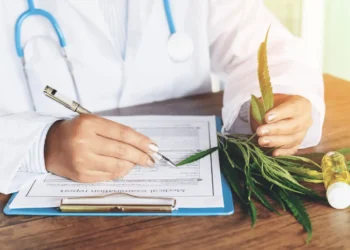Addiction or substance abuse is a dangerous health condition that can take everything away from an individual. That is why opting for a recovery treatment program is a must when you are looking for ways to stop it.
The treatment program includes medication and a lot of therapy and counseling sessions during the treatment the patient has to undergo. Following a healthy routine is also a must, according to this detox center in Austin.
7 Healthy Foods To Boost Your Addiction Recovery
Here in this article, we will guide you with some of the healthy foods in order to boost your addiction recovery. When you are following a healthy routine for fast recovery along with regular exercise and some other healthy habits, giving special attention to food is also necessary.
Avoiding junk foods is the first thing the patient should go for. Now, let’s check out the foods you need to include in your diet chart.
Food 1: Foods That Contain Amino Acid Tyrosine
Tyrosine is the forefather to dopamine; the “feel good” neurotransmitter. In the early recovery, the level of dopamine abnormally decreases. It is also associated with low motivation, energy, a depressed mood, apathy, and intense substance cravings.
One of the most effective natural ways to increase the dopamine level is by having Tyrosine-rich foods. Here are some foods that are high in Tyrosine.
- Whole grains.
- Cheese.
- Lamb.
- Lean beef.
- Pork.
- Sunflower seeds.
- Soybeans.
- Bananas.
Food 2: Foods Rich In L-glutamine
Another amino acid L-glutamine offers antioxidant and immune benefits among other food categories. It is really effective in reducing all those sugar cravings, which are completely common during the initial days of recovery.
As per research, sugar consumption is also related to higher rates of inflammation, depression, and anxiety. All these potentially can hamper progress in addiction treatment. Here are some of the food options.
- Brussels sprouts.
- Carrots beans.
- Beets.
- Dairy products.
- Papaya.
- Celery.
- Chicken.
- Beef.
- Eggs.
Food 3: Foods Rich In Antioxidants
We all are completely aware of how important antioxidants are for rebuilding the immune system, particularly in the aftermath of addiction-related speed and damage to the cleansing process of the body during withdrawal and detox.
Here are some of the best foods that are high in antioxidants.
- Onions.
- Leaks.
- Pecans.
- Artichokes.
- Strawberries.
- Blueberries.
Food 4: Foods That Boost Your GABA Level
Insomnia, restlessness, and anxiety are some of the easy recovery symptoms. Along with withdrawal symptoms, the patient also needs to go through all these symptoms as well. There are some foods that are responsible for boosting your GABA levels that work great here.
For combating all these symptoms, you should consider the following foods.
- Cherry tomatoes.
- Shrimp.
- Kefir is a fermented yogurt-like drink.
Food 5: Foods Contain Tryptophan
You might be thinking, what is this Tryptophan? It is another type of essential amino acid that is present in the body and is responsible for the precursor to serotonin. Tryptophan is basically a neurotransmitter, which at optimal levels promotes a happy and positive mood.
You can find this amino acid in a number of foods, such as the following.
- Oat bran.
- Tuna fish.
- Pork.
- Lamb.
- Turkey.
- Cheese.
- Lentils.
- Beans.
Food 6: Poultry, Fish, And Tofu
As we have mentioned earlier, during the recovery days, the patient must consume enough amino acids to combat the withdrawal symptoms. During those addiction days, the substances that are consumed prevent the human body from processing tyrosine in the proper way.
In order to create a number of neurotransmitters, norepinephrine and dopamine, this particular amino acid is necessary. These two neurotransmitters are responsible for promoting a sense of well-being and mental clarity.
Food 7: Blueberries And Bananas
We have already mentioned that both blueberries and bananas work great for addiction recovery. Banana is full of tryptophan, the amino acid which is also not processed during substance abuse days. This particular amino acid is responsible for the formation of serotonin that promotes proper sleep and relaxation.
Berries, especially blueberries, are packed with antioxidants. However, there are a lot of vegetables and fruits, which are rich in antioxidants, but berries are the best source. During your addiction, the patient’s body is overloaded with free radicals and toxins, for which antioxidants are essential.
A Sample Recovery Meal Plan
A wide range of whole foods is responsible for supporting recovery from substance abuse. So, there is no limit to the potential daily meal place options. Here are some great available options for you.
Breakfast
A fruit smoothing along with combining protein powder, a banana, oats, blueberries, kefir or unsweetened Greek yogurt, and lastly unsweetened almond milk.
Morning Snack
One whole-grain bread layered with peanut butter and honey. Always go for the organic variety with simple no refined sugar.
Lunch
A large place is full of dark leafy greens, such as spinach, topped with chicken salad or tuna.
Afternoon Snack
A handful of sunflower seeds and nuts.
Dinner
Quinoa or any other whole grain, salmon, brussels sprouts, along with a green salad topped with pecans and goat cheese.
When it comes to cultivating a recovery-friendly diet, which will assist in achieving your recovery goals, for getting faster recovery, you need to stick to whole, fresh foods. This way, you will be able to feel healthier by boosting your nutrition.
FAQs
We completely get it; when it comes to addiction and addiction recovery, most of us have a lot of doubts and queries. That is why here, we are answering some of the common questions regarding addiction recovery and nutrition.
Q1: Why Nutrition Is Important In Recovery?
Proper nutrition offers the body much-needed energy. During the recovery process, the patient starts to feel better physically, emotionally, and mentally. Their overall mood also gets affected in a good way. It often provides them a more positive outlook from the aspect of their recovery.
Q2: How Does Drug Use Affect Nutrition?
Substance abuse is responsible for leading mineral and vitamin deficiency that causes mental and physical health issues. It also damages the nervous system and vital organs, along with decreasing immunity.


 Home
Home








